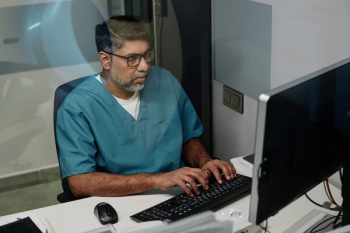
The Usefulness of Annoying Medical Intrusions
Though they take up a lot of time and energy, things like QA and medicolegal systems can be helpful.
A few columns I’ve previously written have probably conveyed the idea that I’m not a huge fan of some of the non-physician influences controlling, or at least impacting, the practice of medicine. The medicolegal and QA systems are some of my more frequent kvetching-subjects.
To make my list of unwelcome intruders, an outside entity has usually done one or more of the following:
- Taken more from the healthcare system than it puts into it (a la spending $10M to root out waste, fraud, and abuse…then recovering less than $1M).
- Burdened the already-overburdened folks providing the actual healthcare goods and services with no-value-added tasks (like paperwork that will vanish into file-cabinets, never to be seen again, or mandated CME courses that have nothing to do with a given doc’s practice).
- Or, even worse, given them hoops to jump through that makes their work harder to do, and/or less effective.
Unwelcome, but useful?
That said, it’s also crossed my mind that some of these things, however unintentionally, wind up having an adaptive impact. At least, for someone of my mishegas (let’s see how many readers know that term without looking it up).
I’ve probably mentioned in previous columns that I could be considered a worrier. I wouldn’t necessarily use so loaded a term, but the fact is that I like to be very sure I am doing, or have done, the right thing. So I worry repeatedly think about what I’m doing, ideally before-but often after-I have done it. This is true whether or not there is any way I could go back and amend it.
It might be said, then, that I have a metaphorical line in the sand that I try not to cross: Doing something that I might subsequently decide was less-than, and wishing I had done otherwise. Partially because I want to perform well, and partially because I know I will repeatedly torment myself if/when I determine I have done…less than well.
Now, enter the QA beast. For all its flaws in execution, it serves as another line in the sand. If I have somehow managed to blunder past my first line, so obliviously as to not even know I did it, the QA process is eternally there to call me out on my misdeed-real or imagined by whomever pulled the QA trigger on me.
Lest it need saying, it is never a joyful moment when this happens. As exacting as I am with myself, it means that either someone has second-guessed my pursuit of perfection (how dare they), or, God forbid, I did indeed err despite what I thought was careful self-policing. Except now there are other folks who will be aware if I embarrassingly stumble across this line in the sand. And, if I do it enough, there will probably be consequences in my workplace.
As bad as that is, it pales in comparison to the med-mal monster. To get to the third line in the sand-that is, being accused of error so bad that it merits legal action-suggests a whole new level of ineptitude (and/or indifference regarding one’s professional performance).
Let’s make up some statistics: If a doc commits 100 errors, including nitpicky little things, suppose 10 of them rise to the level of a ding on his QA record. Maybe one of those is bad enough to come to the attention of a med-mal attorney, not counting the legions of ambulance-chasers out there who don’t exactly wait for a genuine instance of wrongdoing before they file claims. We might say that crossing the third line is 100x worse than crossing the first one, since 99 other flubs didn’t make it that far.
Indeed, even the flimsiest accusation of malpractice gets the accused doc entangled in the med-mal system for months-if not years-of his or her life, and no matter how vindicated he or she eventually is, he or she forever gets to list the matter on his or her applications for insurance, licenses, and credentials. Not to mention the potential losses if the case actually goes to trial, has to be settled, etc. One might even consider settling or losing a case as being a fourth line in the sand.
So, however inefficient, clumsy, or unkind these performance-policing contrivances are as they are implemented, they do serve a kind of purpose. Each of them kind of reinforces the first line in the sand I draw for myself-and, knowing that they’re lurking out there if I should transgress, I’m that much more careful not to cross it.
Newsletter
Stay at the forefront of radiology with the Diagnostic Imaging newsletter, delivering the latest news, clinical insights, and imaging advancements for today’s radiologists.












